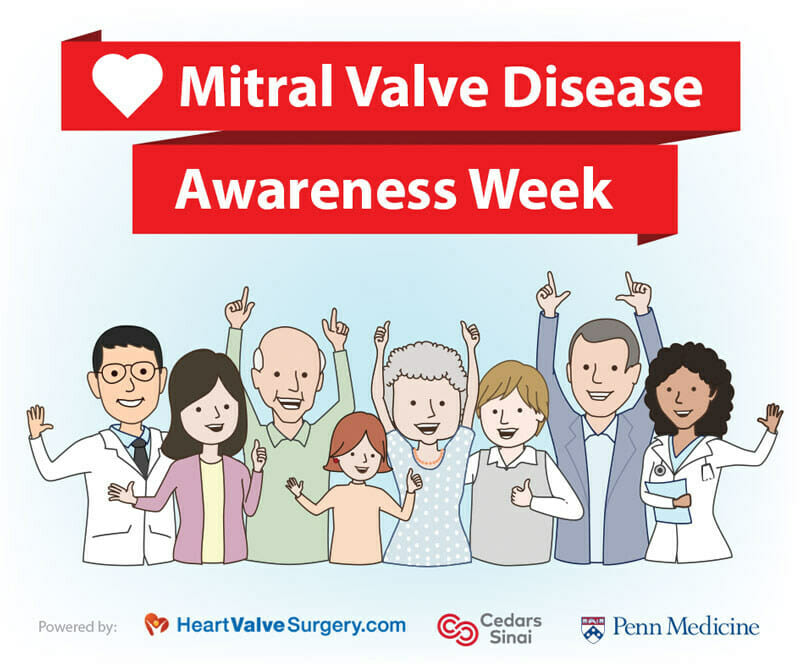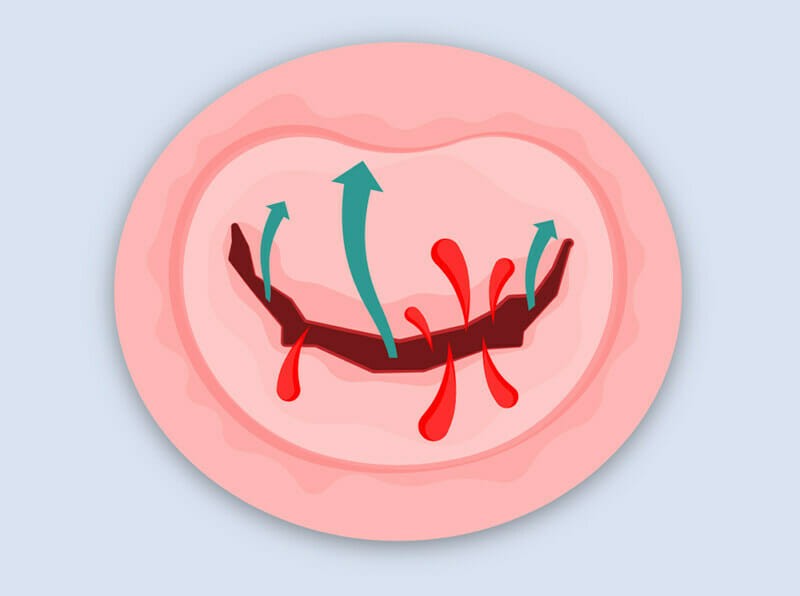HeartValveSurgery.com, a leading patient advocacy group, is teaming up with the Smidt Heart Institute at Cedars-Sinai and Penn Medicine Heart and Vascular Center at the University of Pennsylvania Health System to launch “Mitral Valve Disease Awareness Week“, a global initiative to raise awareness to the health risks and the treatment advantages of mitral valve disease. This novel, patient-centered campaign begins today, Monday, April 10, and continues through Sunday, April 16.

Mitral valve disease, which is the most common heart valve disease worldwide and prevalent in 1.8% of the United States population, can lead to debilitating symptoms and premature death. Sadly, patients diagnosed with severe mitral valve disease who do not get treatment have mortality rates of 20% after one year and 50% after five years.
“Awareness to mitral valve disease is troubling as 75% of patients are not aware of the disease or its health risks,” states Dr. Joanna Chikwe, Chair of the Department of Cardiac Surgery in the Smidt Heart Institute at Cedars-Sinai in Los Angeles. “The fact that mitral valve disease can be completely asymptomatic compounds the need for more awareness, more detection, more education and more life-saving treatment.”
The two types of mitral valve disease are mitral regurgitation (a leaking valve) and mitral stenosis (a narrow valve). Mitral valve disease obstructs blood flow through the heart which can lead to symptoms including shortness of breath, fatigue and chest pain. Patient risks associated with mitral valve disease include heart failure, atrial fibrillation, pulmonary hypertension and death.
“Mitral valve disease is insidious and deadly,” states Dr. Michael Acker, Chief of the Division of Cardiovascular Surgery at Penn Medicine Heart and Vascular Center in Philadelphia, Pennsylvania. “The great news is that advanced surgical techniques, including mitral valve repair, can treat the disease and restore patients to normal life expectancy.”
Unfortunately, only 15% of mitral valve disease patients get treatment given the lack of awareness and the lack of detection of this fatal condition. A simple, non-invasive echocardiogram can detect mitral valve disease in minutes.
“Given the under-awareness and under-treatment of mitral valve disease, we need to stimulate actionable conversations that will save lives,” states Adam Pick, founder of HeartValveSurgery.com. “That is the goal of Mitral Valve Disease Awareness Week.”
In addition to surgical approaches to treat mitral valve disease, various catheter-based approaches are also being developed and tested at institutions like the Smidt Heart Institute at Cedars-Sinai and Penn Medicine Heart and Vascular Center. This technique involves heart catheterization, a process by which tubes are threaded through an artery and vein to the heart where various procedures can then be done.
The Mitral Valve Disease Awareness Week campaign consists of two components. First, HeartValveSurgery.com will coordinate an episodic, digital distribution of unique, educational content about mitral valve disease across its social media platform. HeartValveSurgery.com is followed by over 500,000 people on social media. Second, HeartValveSurgery.com will host a live and free patient webinar about mitral valve therapy on Thursday, April 13, at 6pm EST. Click here to register for the free webinar.
Mitral valve experts – both cardiac surgeons and interventional cardiologists – participating in Mitral Valve Disease Awareness Week include Dr. Michael Acker, Dr. Pavan Atluri, Dr. Joanna Chikwe, Dr. Dominic Emerson, Dr. Howard Herrmann, Dr. Michael Ibrahim and Dr. Wilson Szeto.
Click here to learn more about Mitral Valve Disease Awareness Week.


